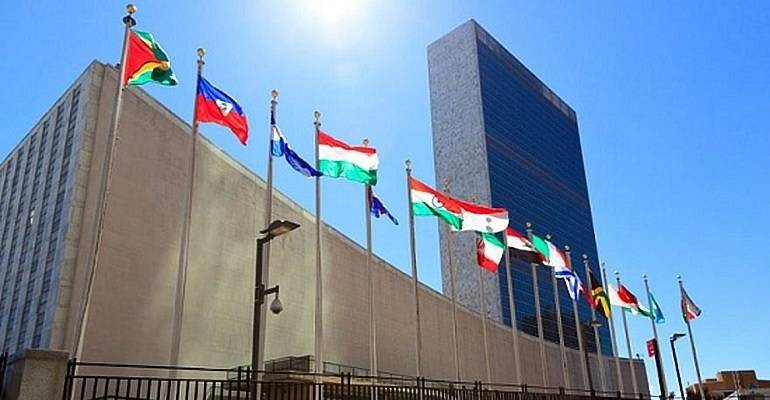The United Nations finally admitted that the virulently anti-Israel BDS movement is a significant cause of Jew-hatred worldwide.
By United With Israel Staff
On Monday, the United Nations (UN) released an interim report by Special Rapporteur Ahmed Shaheed that blasts the UN for its stance on BDS and exposes the movement’s role in promoting anti-Semitism.
The report, called “Combating Anti-Semitism to Eliminate Discrimination and Intolerance Based on Religion or Belief,” was presented to the Human Rights Council following recent addresses by UN Secretary-General Antonio Guterres on anti-Semitism and religious freedom.
It discusses the “growing use of anti-Semitic tropes by white supremacists including neo-Nazis and members of radical Islamist groups,” and slams “‘left-wing’ anti-Semitism [that] employ[s] anti-Semitic narratives or tropes” to criticize Israel.
The report concludes “that the objectives, activities and effects of the Boycott Divestment Sanctions (BDS) movement are fundamentally anti-Semitic.”
Shaheed included, however, that “international law recognizes boycotts as constituting legitimate forms of political expression and that non-violent expressions of support for boycotts are, as a general matter, legitimate speech that should be protected.”
But, he stressed that “expression which draws upon anti-Semitic tropes or stereotypes, rejects the right of Israel to exist, or advocates discrimination against Jewish individuals because of their religion should be condemned.”
Holocaust Deniers and Israel Haters
Holocaust deniers, equating Zionism with racism and claiming that Israel has no right to exist were specifically noted as anti-Semitic.
Stating that the “frequency of anti-Semitic incidents appears to be increasing in magnitude,” the report notes that governments that “enact laws and policies that restrict Jewish practice, including limiting kosher slaughter methods or barring Jews from political participation in higher office” are part of the problem that “poses risks not only to Jews, but also to members of other minority communities.”
The report’s suggestions for confronting anti-Semitism include adoption of the International Holocaust Remembrance Alliance’s “Working Definition of Anti-Semitism” by governments, civil society organizations and the media.
According to this definition, “Antisemitism is a certain perception of Jews, which may be expressed as hatred toward Jews. Rhetorical and physical manifestations of anti-Semitism are directed toward Jewish or non-Jewish individuals and/or their property, toward Jewish community institutions and religious facilities.”
The report also calls on leaders to “promptly, clearly, and consistently reject manifestations of anti-Semitism within their parties and in the public discourse.”
The report concluded with specific instructions for the UN.
“The UN system has a vital role to play in engaging with Jewish communities to combat anti-Semitism,” wrote Shaheed. “The Secretary-General should consider appointing a senior-level focal point in the Office of the UN Secretary-General with responsibility for engaging with the Jewish communities worldwide, as well as monitoring anti-Semitism and the response of the UN there too.”
Israel’s ambassador to the UN, Danny Danon said, “We welcome the release of this unprecedented report on the subject of anti-Semitism. The report reflects the organizational change toward Israel. The assertion that the BDS movement encourages anti-Semitism is an important UN statement.”
The Special Rapporteur on freedom of religion or belief is an independent expert appointed by the UN Human Rights Council.
